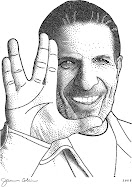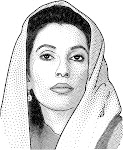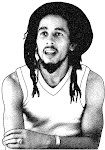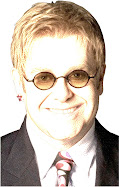 I watched the first version of this Henry Louis Gates PBS special, with its second series installment airing Wednesday (2/6 & 2/13, PBS, 9PM EST), and found it very worthwhile. Not only did the first (and now second) showing utilize my cousin Fatimah Collier Jackson as an anthro-biologist researcher, but more importantly it made a case why evolutionary biology is so important in our lives.
I watched the first version of this Henry Louis Gates PBS special, with its second series installment airing Wednesday (2/6 & 2/13, PBS, 9PM EST), and found it very worthwhile. Not only did the first (and now second) showing utilize my cousin Fatimah Collier Jackson as an anthro-biologist researcher, but more importantly it made a case why evolutionary biology is so important in our lives.The study of DNA, and its growing ability to reveal the past, is critical to our base knowledge of the factors influencing the how and why of African-Americans in this country. Yes, the slave trade was the vehicle, but in itself it tells us nothing about the ‘set up’ to those events, and how that influence is still with us.
Evolutionary biology and its high-order subset, social evolution, is the arena where we get to ask questions about why things are really the way they are. Why we feel and behave the way we do, to our benefit and detriment. In this arena, the simple answer, that everything is the white man’s fault, is no longer sufficient, or even digestible.
At one point in the current show, entertainer Chris Rock states that he would have expected more of himself had he known more about his African beginnings. I dare say that black people in general, would have higher requirements of themselves if they were more knowing. Most importantly, blacks might understand that much of the character that influences their lives reaches farther back than segregation, or slavery, or even colonial exploitation, but rather has to do with how branches of humankind have evolved physically and socially over the last ten thousand years, beginning in Africa.
I encourage everyone to watch the four-part series (aired in two groups), which attempts to help us reach back into our past, so that we can better navigate our future.
James C. Collier
READ MORE ACTING WHITE...
Technorati Tags: AFRICAN AMERICAN LIVES 2, Henry Louis Gates, DNA, Slavery, Africa, Acting White












































8 comments:
The presentation of Linda Johnson-Rice was a bit perplexing. Her footage failed to reveal her full status as adopted at age 3, and leads the viewer, by way of a family tree, to believe she is the biological daughter of Eunice Johnson, and great granddaughter of Reverend William McAlpine (Eunice's grandfather), founder of the eventual Selma University. Celebrity qualifies her for inclusion, but this inaccuracy does a disservice to the science underpinning the program.
Anon 12:35, I checked and you are correct re: the adoption. Not sure why the program ignores this fact - especially on a project that seeks unknown truths.
I thought this was a fascinating series and would love to track my own lineage! Your blog is pretty fascinating, too.... (((((HUGS))))) sandi
Your comments in regards to the impact that knowing about one's lineage can have on your self-esteem and aspirations makes me think about how often teachers are derided when they focus on Black History with Black students. I think the Chris Rock analogy helps us to understand how powerful it can be to a young person to know about the accomplishments of others from their culture, particularly in a society that often send subliminal messages that you are "less than" or "less capable."
Per Anon 12:35, the second show revealed Rice-Johnson as adopted, so I suppose disclosure requirements were met, albeit in curious order.
My family and I watched this segment today. I am very interested in finding out my family tree. My father committed suicide when I was younger. I never met my grandmother or anyone on his side of the family. This show really touched me.
This is pure speculation of course but, if you look at Linda Johnson Rice, it appears as if she is probably related to one side of her parent’s families. Remember there were plenty in the African American communities (as well as many others) who adopted from their own family members that were either unmarried or young adults who became pregnant too young back around the time Linda was born. It is possible that it was at least half of her bloodline that was being analyzed.
Either way it was wonderful to learn about her parents who raised a really grounded and decent person.
For father's day in 2007, I presented my dad, research of our family history.
This begins in 1790 in South Carolina - John Harris, who had just arrived from London.
I'd love to send this to someone who can verify all of this..
Post a Comment